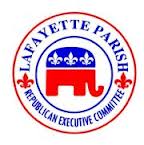We have covered developments in the town of Indianola, Iowa, where the community decided to build their own network in 1998. The original purpose for investment was to use the network to enhance public safety and increase efficiency with SCADA applications. In 2005, however, the network began offering telecommunications services to local businesses. As of October, Indianola Municipal Utilities (IMU) began offering fiber-to-the-home to residents as it gradually begins expanding the use of its fiber asset.
You can now hear firsthand about the network, its history, and how the municipal utility navigated the journey to its next-generation open access network. Craig Settles interviewed Todd Kielkopf, General Manager of IMU, in an August Gigabit Nation podcast. The two discuss IMU's evolution since 1998. They also talked about the unique advantages that exist when a community considering network infrastructure investment already has a municipal utility in place.
Kielkopf tells how the driving factor for the fiber installation was to allow easier management and communication between utilities. When a 1990 franchise agreement with MediaCom was about to expire, the city investigated options. Hopes were that that the city could build a fiber network and MediaCom would offer services over that network, but that vision was never embraced by MediaCom.
Iowa law allowed the city to hold a referendum asking residents for permission to provide telecommunications services through the municipal utility's network. The referendum passed and they created a five year financial plan. Financing was with taxable and tax exempt bonds. The electric utility would build and own the network and a new telecommunications utility would license to a private partner that would offer retail services. Now, IMU and Mahaska Communication Group (MCG) have an agreement whereby MCG provides retail services over the network. While the agreement is not exclusive, no other providers currently use the network.




